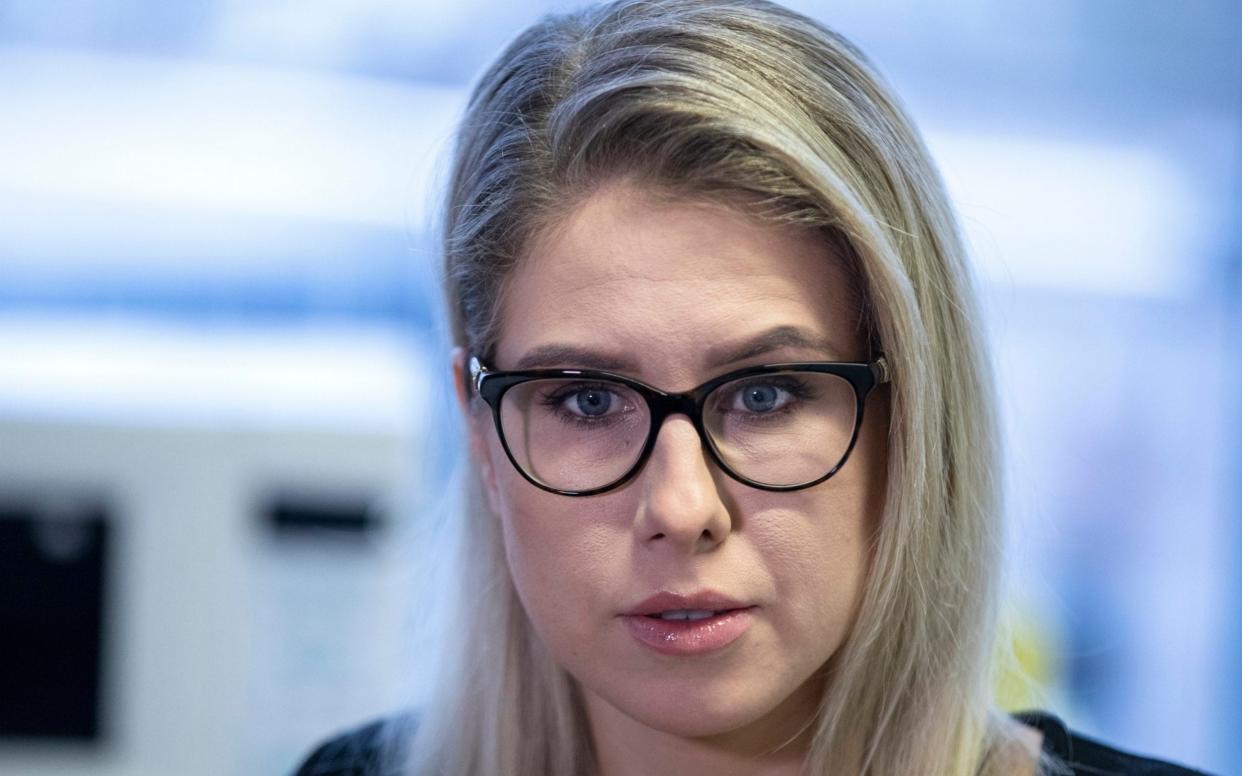Russian activist charged with trespassing for doorstepping Navalny poisoning confessor

- Oops!Something went wrong.Please try again later.
A close ally of Alexei Navalny has been released from custody and officially charged with trespassing after she was accused of attempting to confront one of the men allegedly involved in the near-lethal poisoning of the Russian opposition leader.
Lyubov Sobol last week went to the home of a suspected Russian intelligence agent in Moscow after he unwittingly confessed to his involvement in the operation over the phone to Mr Navalny, who is still convalescing in Germany after being exposed to the Soviet-era nerve agent Novichok in August.
Police raided Ms Sobol’s home and hauled her in for questioning on Friday after the suspected agent’s mother-in-law accused her of trespassing.
The 33-year-old said that she merely rang the man’s doorbell.
Ms Sobol, who led major opposition protests in Moscow last year, was officially charged and released on Sunday evening after spending 48 hours in detention.
She complained that she “didn’t get a moment of peace” in custody as she was taken to six different sessions of questioning, and her cell was searched.
In a video message posted after her release, she described the criminal prosecution against her as a political vendetta.
“It’s an act of revenge on Navalny for surviving (the poisoning),” she said. “Clearly, they’re going to press ahead with the criminal case against me because I dared to come up to the door of a killer.”
Mr Navalny last week released an audio recording of a confession by Konstantin Kudryavtsev, whose mother-in-law filed charges against Ms Sobol, following a sting operation in which he called the man up and posed as a senior intelligence official collecting information for a Kremlin report.
Mr Kudryavtsev revealed that he was sent to Siberia to get rid of the traces of Novichok in his underwear and clothes thought to remain after the poisoning.
Mr Navalny spent several weeks in a coma after he fell suddenly ill on a plane from Siberia to Moscow in August.
A well-researched investigation by independent investigative outlet Bellingcat and several other media outlets earlier this month identified eight Russian intelligence agents who were trailing Mr Navalny for months before the poisoning.
Vladimir Putin, the Russian president, admitted earlier this month that Mr Navalny was tailed by FSB intelligence agents but denied any links to the poisoning.

